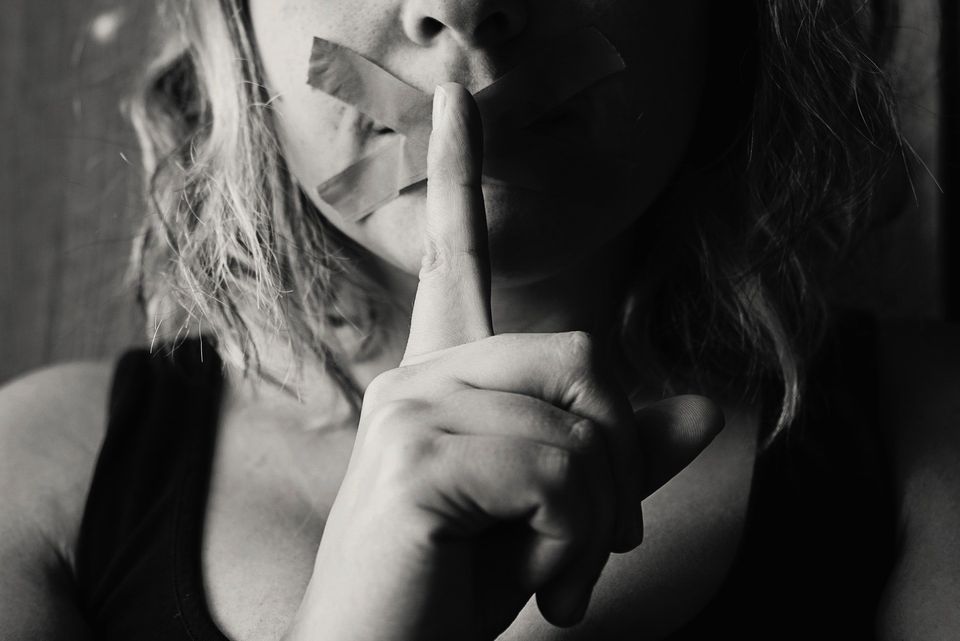Don't Let Social Anxiety Get You Killed

This is what social anxiety and self-denial look like. And this is what you should never, ever do. No matter how shy you are.
I took a leap in 2018. I went on a retreat to Dublin Ireland for people who struggle with social anxiety and dating. There, a group of us met with coaches who helped us move past our fears and become comfortable in our own skin.
The event had the vibe of group therapy. The coaches were receptive and accommodating. It was a safe, welcoming environment.
And it was our first day. We were meeting in the living area to have a discussion. The coaches prepared some snacks, and one of them held out a plate full of cookies as soon as I entered the room. I ate one without a second thought.
If someone’s nice enough to offer you food, you can’t say no, right?
The Issues With Being a Wallflower
So the meeting gets started, and one of the coaches begins to speak. I was listening intently until things started to feel off.
There was a tingle in my throat. My palms were itchy, and my breathing was a little more labored.
That’s because my throat was starting to close. Whatever I ate five minutes prior was topped with something. Nuts? If it was nuts, I thought to myself, then we have a situation here.
I’ve had allergic reactions in the past, but my throat never fully closed. I wouldn’t be typing this if it did. But here’s the problem: More than anything, I didn’t want these strangers to know what was happening. I was deathly afraid of drawing attention to myself. So, like a soldier, I bit my lip and rode it out.
“Don’t…move… a muscle…Just look straight ahead, and listen. Stop scratching so much!”
I couldn’t let on I was having an allergic reaction. If I did, it would be a whole thing. Everybody would get concerned. I would interrupt the retreat. People would freak out and ask if I had an EpiPen. I would be the red hot center of attention. Causing problems, like always. That was my thought process.
Even in an environment where you’re encouraged to share your anxieties, I was more willing to suffer in silence than reveal my fuck up. And if I’d had a worse reaction, I might have dropped dead and fallen headfirst into the coffee table. Well, at least he paid the deposit.
I dealt with my private issue for the remainder of the afternoon. Somehow, despite all the scratching and heavy breathing, no one noticed. I felt relieved, but I also felt stupid.
It really had gotten that bad.
Shout It to the Heavens
Here’s the number one thing I’ve learned through experiences like this:
If you’re suffering, say it.
I assumed that any problem I had would be a burden on someone else. It’s a classic symptom of social anxiety. This type of thinking creates a distance between yourself the people around you.
Don’t invalidate your problems for the sake of someone else’s comfort. You’re human too. Share your issue. Ask. For. Help.
According to researcher Jeffery Davis,
“ …we are loathe to ask for help because this seemingly simple act carries a number of high social risks: rejection, vulnerability, diminished status, and the inherent relinquishing of control.”
But what happens when you don’t? You suffer needlessly, maybe for years, and you could be putting yourself in danger because you aren’t willing to endure one vulnerable moment of exposure. No one is invincible, and no one gets anywhere completely by themselves. You aren’t foolish for having problems.
Your needs should be a priority, and people are more willing than you think to help you meet those needs. A chance to help you gives people an opportunity to connect with you on a deeper level. Generosity doesn’t erode connections, it generates them.
What I should have said is this:
“You’ll have to excuse me. I think I’m having an allergic reaction to whatever I ate this morning. I think I’m ok, but I want to make you all aware.”
There would be a minor panic, but then there would be support. That’s why they were there in the first place.
When you think about asking someone for help, your feelings tell you that they’re going to say, “Ugh. You idiot. How did you make that mistake? Do I have to deal with your issue now? What a pain in the ass.”
But that’s your imagination. You can’t predict how someone is going to react.
There are plenty of people who want to help you. You just have to be willing to say you need it.



